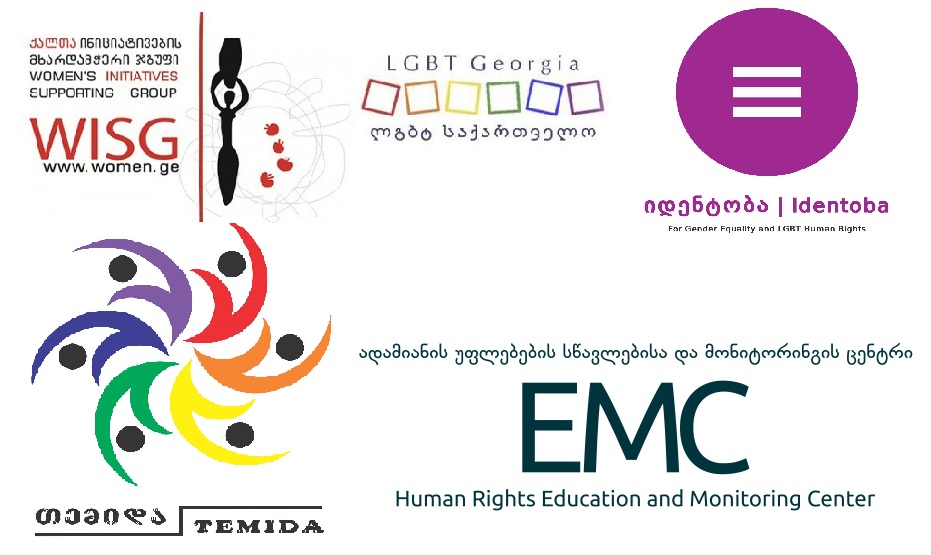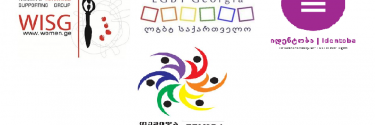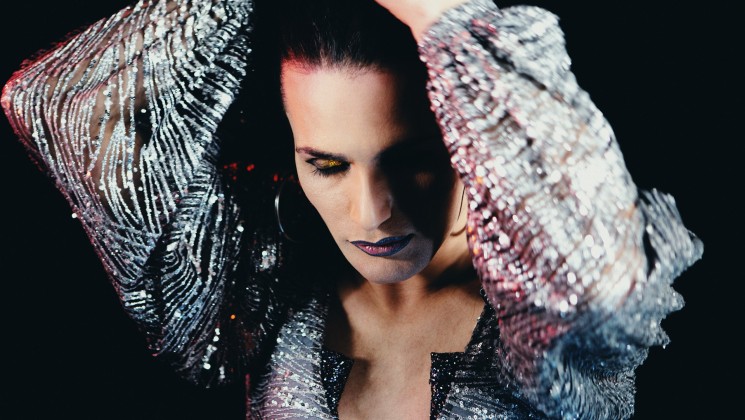
On February 9, the media reported that the Head of fraction “Kartuli Otsneba” (Georgian dream), Gia Volski, stated that work on constitutional amendments in legislative body is in progress, according to which “family” will be defined in the Constitution as a union of a man and a woman.
Furthermore, the information was disseminated by the representative of the movement “Erovnulebi” that they are also planning to submit draft of constitutional amendments to the parliament. According to him, the idea of the amendment is that marriage is free-will union of man and woman that is based on the equality of rights of spouses.
In June, 2015 former Prime Minister Irakli Garibashvili stated, that “he, as a Prime Minister, will do anything for writing in Constitution that the marriage is unity of man and woman“.[1]
Moreover, the Bureau of the Parliament initiated legislative proposal of NGO „Protect your rights” that concerns the abovementioned changes in the constitution[2].
It is important that the issue of equality of marriage was never raised by LGBT community and organizations. In the current institutional homophobic conditions of the country, LGBT persons are expelled from public spaces and are subject to discrimination and systematic violence that prevents them from enjoying their fundamental rights guaranteed by the Constitution. In these conditions, the majority of LGBT persons give less priority to the right of marriage, than solving the above-mentioned problems. Accordingly, this issue is not on the agenda of the organizations working on LGBT peoples’ rights.
According to the statement made by LGBT organizations on February 8, 2016, “taking into consideration the violent conditions, LGBT persons mostly have to hide their sexual orientation and/or gender identity […], civil marriage means revealing own relations and identity. Given the fact that LGBT persons have to hide their identity and relations, in order to avoid likely violence, persecution and harassment, the right to marriage, even if legalized, will become an unusable opportunity for the majority.“[3]
However, trying to create an enemy image out of the LGBT persons and portraying artificial threats towards marriage institution, the antigender politic and social groups constantly put abovementioned issues on agenda that are far from protecting human fundamental rights.
The agreement regarding the equal marriage has not been reached yet in the various countries. But marriage equality and partnership is increasingly being legalized. Different types of relations between the same sex people are recognized by 27 European countries (majority are the members of EU). And 14 countries out of 49 have established constitutional limitations on marriage equality.[4], including Armenia, Azerbaijan and Ukraine.
Similar restrictive constitutional amendments were carried out in Latvia, Slovakia, Hungary and Croatia. Based on the assessment of the international organization, IKGA Europe, these processes are provoked by religious extremists and ultra-conservative parties. They are using democratic tools such as constitutional amendments and referendums, inorder to inseminate homophobia [5].
According to international law, states are not obliged to provide marriage equality between same-sex people. Although, the UN Committee on Economic, Social and Cultural rights calls for the countries to recognize legally the relations of the same-sex people[6]. According to the report of the UN Human Rights High Commissioner’s Office, non-recognition of the abovementioned relations and failure to comply with the principle of non-discrimination supports marginalization of LGBT couples and causes ill- and unequal treatment from private persons, providers of healthcare services and insurance companies.[7].
It is important that the European Court of Human Rights shares the UN approach and considers legal non-recognition of domestic partnership of the same-sex people as violations the Artcile 8 (private and family life) and Article 14 (Prohibition of discrimination) of the Europan Convention. On the Case Schalk and Kopf v. Austria, the European Court clearly states that “the same-sex persons can have the same stable relations as people of opposite sex. They are the same as couples of the opposite sex that implies the same requirements – their relations to be legally recognized and protected”. The decision of European Court on Vallianatos and Others v. Greece is yet another demonstration of the abovementioned assessment, where the court is unequivocally critical regarding the absence of “registered partnership” for the LGBT persons in the countries.
One of the European Court’s recent decisions on the case Oliari and others v. Italy is very important, where the violation of the Article 8 of the convention was found due to the inexistence of any mechanisms for legalizing relationships among people of the same sex. Accordingly, the Government of Georgia is obliged to settle the partnership (including hereditary, property and other personal non-property relations) and use equal legal regime towards them.
As it was mentioned, giving the right of marriage to the same-sex people is the domestic prerogative of the country and is related to changes of social attitudes towards LGBT persons in specific society and the emancipation of LGBT community. This is confirmed with the abovementioned statement of the LGBT oganizations, that is visible evidence that marriage is not a priority issue on the agenda of LGBT persons today. We assume that the Constitutional amendments initiative does not serve the objective of establishing democratic values in the country and is more subject of political speculations. The initiatives related to the concepts of marriage in the Constitution appear to be the main strategy of the political groups in current election year. Political groups with low public support and political thinking are trying to create artificial agendas and gain support with ideological and irrational influence tools, instead of developing projects supporting social, economic and political development and emancipation of various groups. Manipulating with such issues leads to strengthening of discrimination practices and continuous and systematic marginalization of the LGBT community. Additionally, in the current conditions when Georgian legislation framework does not include the opportunities of legal coverage of same-sex people relations, that includes partnership, the abovementioned initiative, aimed at abolishing and restricting non-limited definition of family in the Constitution, should be assessed as an attempt of substantial deterioration of constitutional standards and of LGBT human right situation. It is clear that the abovementioned initiative is based not on family care, but is aimed at non-recognition of LGBT persons’ rights and prohibition of protection of the same-sex people partnership. While the European countries move forward in the regard of legal recognition of LGBT families and social acceptance, the abovementioned amendment only strengthens additional restrictions, prohibitions and discrimination towards LGBT people.
Accordingly, we urge the Government to:
- Depoliticize LGBT themes and not use the mentioned issues for political speculations;
- Stop the process of the Constitutional amendments, concerning first part of the Article 36;
- Take all preventive measures not to intensify phobic attitude in the society and support the establishment of a tolerant environment;
- Stop manipulating with LGBT persons’ rights and respect fundamental human rights and freedoms;
- Start discussion and working on implementing gender neutral marriage/partnership standards in the legislation of the country, where the organizations woking on LGBT persons rights will be involved. Translation: by EMC









